
Chenopodium is a genus of numerous species of perennial or annual herbaceous flowering plants known as the goosefoot, which occur almost anywhere in the world. It is placed in the family Amaranthaceae in the APG II system; older classification systems, notably the widely used Cronquist system, separate it and its relatives as Chenopodiaceae, but this leaves the rest of the Amaranthaceae polyphyletic. However, among the Amaranthaceae, the genus Chenopodium is the namesake member of the subfamily Chenopodioideae.
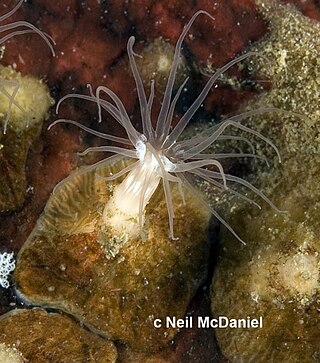
Octineon is the sole genus of sea anemones in the monotypic family Octineonidae.

Oedogonium is a genus of filamentous, free-living green algae. It was first discovered in the fresh waters of Poland in 1860 by W. Hilse, and later given its name by German scientist K. E. Hirn.
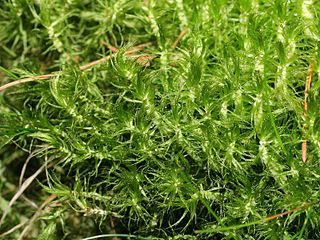
Dicranum is a genus of mosses, also called wind-blown mosses or fork mosses. These mosses form in densely packed clumps. Stems may fork, but do not branch. In general, upright stems will be single but packed together. Dicranum is distributed globally. In North America these are commonly found in Jack pine or Red pine stands.
Galium suecicum or Swedish bedstraw is a plant species of the Rubiaceae. It is native to central and southern Sweden, and has also been collected in Germany.
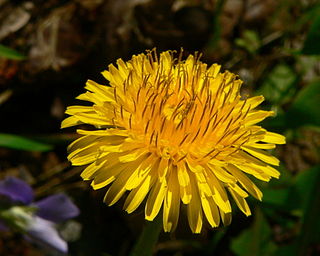
Taraxacum is a large genus of flowering plants in the family Asteraceae, which consists of species commonly known as dandelions. The scientific and hobby study of the genus is known as taraxacology. The genus is native to Eurasia but the two most commonplace species worldwide, T. officinale and T. erythrospermum, were introduced from Europe into North America, where they are an invasive species. Dandelions thrive in temperate regions and can be found in yards, gardens, sides of roads, among crops, and in many other habitats. Both species are edible in their entirety and have a long history of consumption. The common name dandelion is also given to specific members of the genus.

Thelotrema is a genus of lichen-forming fungi in the family Graphidaceae, the family to which all taxa in the former Thelotremataceae now belong.

Sistotremastrum is a genus of crust fungi in the Hydnodontaceae family. The genus has a widespread distribution, and contains four species. Sistotremastrum was defined by Swedish mycologist John Eriksson in 1958.

Diadegma is a genus of wasps described by Förster in 1869. Diadegma is part of the family Ichneumonidae.
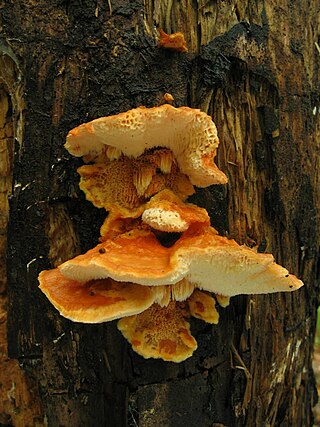
In Finland, Kotiranta and Niemelä introduced a widely used method for comparing the conservation values of different forest areas, based on the observation that certain wood-rotting fungi are very sensitive to the impact of human activities on forest ecosystems. Such species are slow to return to areas from where they have disappeared, so their presence is evidence of a long continuity in forest ecosystems.
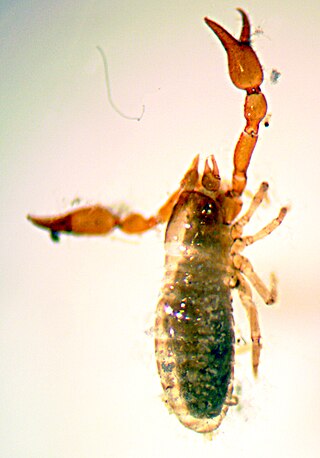
Microbisium is a genus of pseudoscorpions in the family Neobisiidae. There are about 12 described species in Microbisium.
Taraxacum suecicum is a species of plants belonging to the family Asteraceae.









